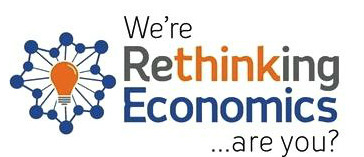From Lars Syll You ask me what all idiosyncrasy is in philosophers? … For instance their lack of the historical sense, their hatred even of the idea of Becoming, their Egyptianism. They imagine that they do honour to a thing by divorcing it from history sub specie æterni—when they make a mummy of it. Friedrich Nietzsche Nowadays there is almost no place whatsoever in economics education for courses in the history of economic thought and economic methodology. This is deeply worrying. History and methodology matter! A science that doesn’t self-reflect on its own history and asks important methodological and science-theoretical questions about the own activity, is a science in dire straits. How did we end up in this sad state? Already back in 1991, a commission chaired by Anne Krueger
Topics:
Lars Pålsson Syll considers the following as important: Uncategorized
This could be interesting, too:
tom writes The Ukraine war and Europe’s deepening march of folly
Stavros Mavroudeas writes CfP of Marxist Macroeconomic Modelling workgroup – 18th WAPE Forum, Istanbul August 6-8, 2025
Lars Pålsson Syll writes The pretence-of-knowledge syndrome
Dean Baker writes Crypto and Donald Trump’s strategic baseball card reserve
from Lars Syll
You ask me what all idiosyncrasy is in philosophers? … For instance their lack of the historical sense, their hatred even of the idea of Becoming, their Egyptianism. They imagine that they do honour to a thing by divorcing it from history sub specie æterni—when they make a mummy of it.
Nowadays there is almost no place whatsoever in economics education for courses in the history of economic thought and economic methodology. This is deeply worrying. History and methodology matter! A science that doesn’t self-reflect on its own history and asks important methodological and science-theoretical questions about the own activity, is a science in dire straits.
How did we end up in this sad state?
Already back in 1991, a commission chaired by Anne Krueger and including people like Kenneth Arrow, Edward Leamer, and Joseph Stiglitz, reported from own experience “that it is an underemphasis on the ‘linkages’ between tools, both theory and econometrics, and ‘real world problems’ that is the weakness of graduate education in economics,” and that both students and faculty sensed “the absence of facts, institutional information, data, real-world issues, applications, and policy problems.” And in conclusion, they wrote that “graduate programs may be turning out a generation with too many idiot savants skilled in technique but innocent of real economic issues.”
Not much is different today. Economics — and economics education — is still in dire need of a remake.

More and more young economics students want to see a real change in economics and the way it’s taught. They want something other than the same old mainstream catechism. They don’t want to be force-fed with useless mainstream theories and models.
